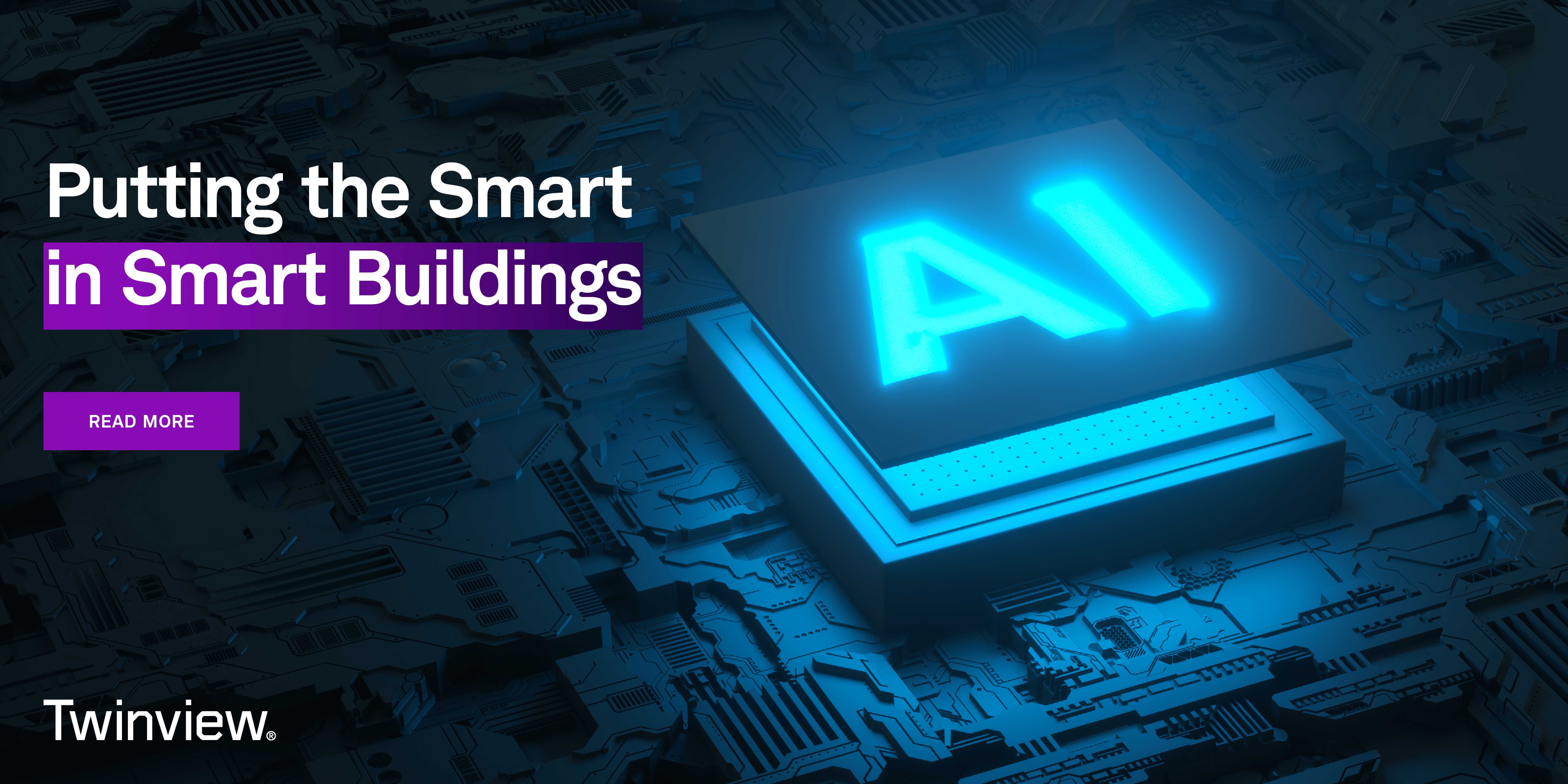11 Jul 2022
AI: Putting the Smart in Smart Buildings

A vast amount of data produced in the operation of a building goes untouched and unused. Two major contributing factors to this are disorganised data and archaic siloed systems. As evidenced during a Smart Building Summit in California, Honeywell's Adhishesh Sood stated, "our data about buildings is a mess."
His fellow panellists agreed and began a discussion around the role artificial intelligence (AI) will play in changing how we collect, organise and utilise building data.
In an ever-evolving world, businesses need to adapt and remain up to date with the latest technologies. Industries such as healthcare and retail have been integrating AI into management strategies for years.
AI poses a vital opportunity to maximise building potential within the real estate sector. As a critical piece of any smart building, AI provides numerous benefits to building owners, facilities managers, and operators. With more than four walls and a roof, an intelligent building can improve productivity, drive efficiencies, lower carbon emissions, and reduce operational expenditure.
"It is the confluence of these developments, the ability to pair intelligent technologies and data, that makes these extraordinarily exciting times, and the future possibilities of digital twins to enhance the world we all live in beyond limits."
- Professor Mark Girolami, Programme Director for Data-Centric Engineering at The Alan Turing Institute
We are at a point when innovative technology solutions are vigorously moving from theory to practical application. At present, with the help of AI, intelligent buildings are using data to interact, learn and adapt to new conditions and ever-changing business needs.
Alongside AI, machine learning (ML) and the internet of things (IoT) commonly come up in conversation.
What is the difference between AI, ML, and IoT?
The Internet of things came first and encompassed a substantial network of gadgets and devices that share information about how they and their surrounding environments function when connected to the internet. During the next stage of its digital lifecycle, the data collected by IoT devices is passed onto its counterpart platform, where ML and AI are embedded.
While ML and AI relate closely, ML is more of a subgroup of AI. At its core, ML speaks to how a computer system develops its intelligence, whereas AI uses maths and logic to enable machines to simulate human behaviour and reasoning.
The use of AI is evident in navigation apps like Waze and Google Maps. They work by adjusting your route based on traffic data and patterns of human behaviour. Another familiar example of AI is when you have mistyped a word in Google and the "Do you mean.." message flags up. The suggested link is based on previous user errors and activity.
Vastly interconnected, these three digital solutions can provide holistic insights into physical assets such as entire estates and buildings.
"There is a huge potential to apply technologies like internet of things, AI, cloud, and mobility in real estate operations to create value"
-Kyle Wiggers, Senior Reporter at TechCrunch
AI technologies can positively transform how buildings operate and when implemented alongside a digital twin, these new technologies breathe life into buildings.
"Using a platform with built-in AI is where the real innovation happens."
-Published by John Hatcher in his article, "Making the most of AI in smart buildings."
The concepts behind a digital twin harmonise the entirety of the lifecycle of a building into one single platform. Paired with IoT devices, they collate, configure and present discoveries in a practical and actionable way. Digital twins that utilise AI make buildings smarter by taking building information and converting it into tangible improvements. AI inspires data-led decision-making that supports businesses financially and operationally while delivering occupant satisfaction.
How intelligent buildings capture data is key to optimising AI predictions and suggestions. The more devices and integrated tools embedded within an IoT building, the better.
With these new technologies, after quality comes quantity. Like the case of typing the wrong spelling into Google, the more users interact, the more meaningful the information will be. For this reason, digital twins and artificial intelligence are the perfect collaborators. Unified as one, the digital twin data repository feeds the built-in AI.
Transform data into actionable intelligence
Digital twins utilise real-time occupancy to identify the areas where you can save operational expenditure. For instance, IoT devices around the building connect footfall information to an AI digital twin that recommends energy-efficient strategies. Additionally, the digital twin backed by market analytics shows the most competitive energy prices based on real-time data. As a result, occupants are comfortable, carbon emissions are minimised, and the building isn't wasting precious resources. Therefore, robust digital solutions can achieve ambitious cost-saving targets and cut energy consumption.
Ensure operational efficiency on a grander scale
Artificial Intelligence in property management utilises comprehensive data to automate repetitive tasks and streamline operational processes providing building owners and managers complete transparency and control over their building systems. Accessed via a single- platform, building owners, facilities managers, and tenants can review real-time data and AI suggestions before making informed decisions. Cloud information storage and online tools remove the need for traditional, redundant styles of "bookkeeping." Digital twins and AI identify solutions and efficiently organise and update building information. Adopting these new technologies can transform building data from being a "mess" to being an organised guide.
All of this can be achieved with Twinview.
With Twinview in place, you can utilise entire portfolio insights to evaluate, strategise, and execute positive changes for better building outcomes. Take back control and prepare for the future with operational transparency and intelligent resolution plans.
With built-in AI, our digital twin provides estate owners and managers an alternative lens into their building and its everyday performance. By facilitating data-led decision-making, the Twinview recommendation engines offer the means to improve data integrity and reduce human error.
Building and facilities managers understand the importance of keeping one eye on the future. Capturing the value of Industry 4.0, the Twinview flexible, scalable cloud-based platform integrates new technologies quickly.
Harness the power of your building's information with Twinview.
Book your one-on-one appointment with one of our specialists.
info@twinview.com
+44 (0)844 800 6660
London
24 Greville Street
Farringdon
London
EC1n 8SS
Newcastle
Spaceworks
Benton Park Road
Newcastle upon Tyne
NE7 7LX



